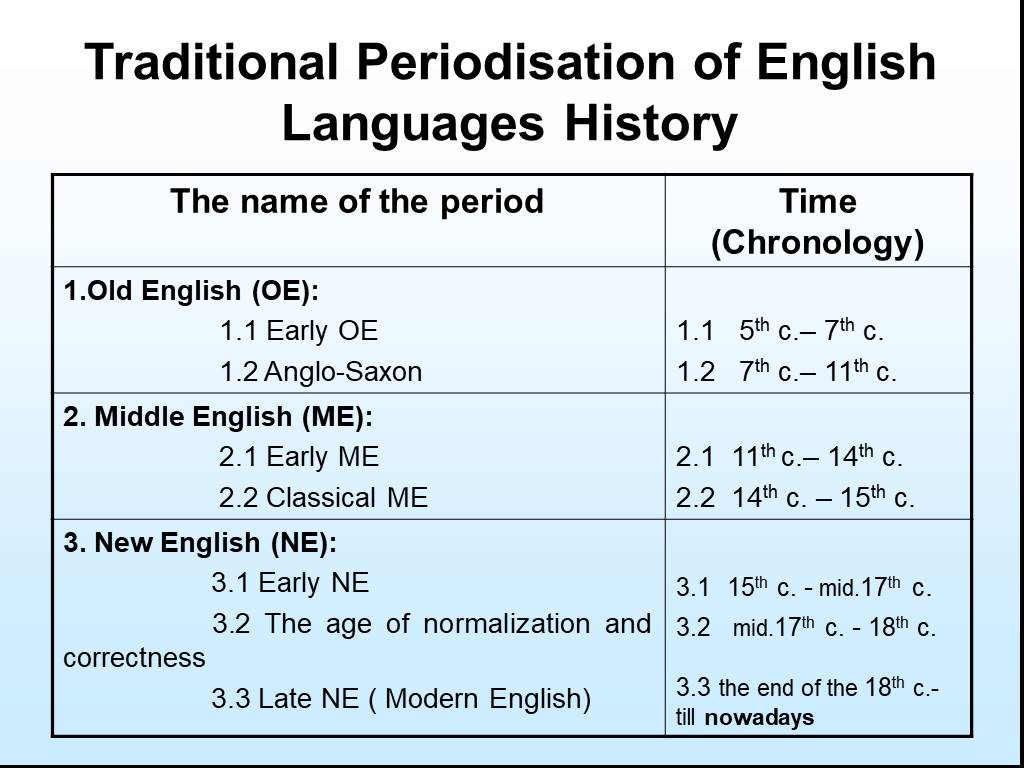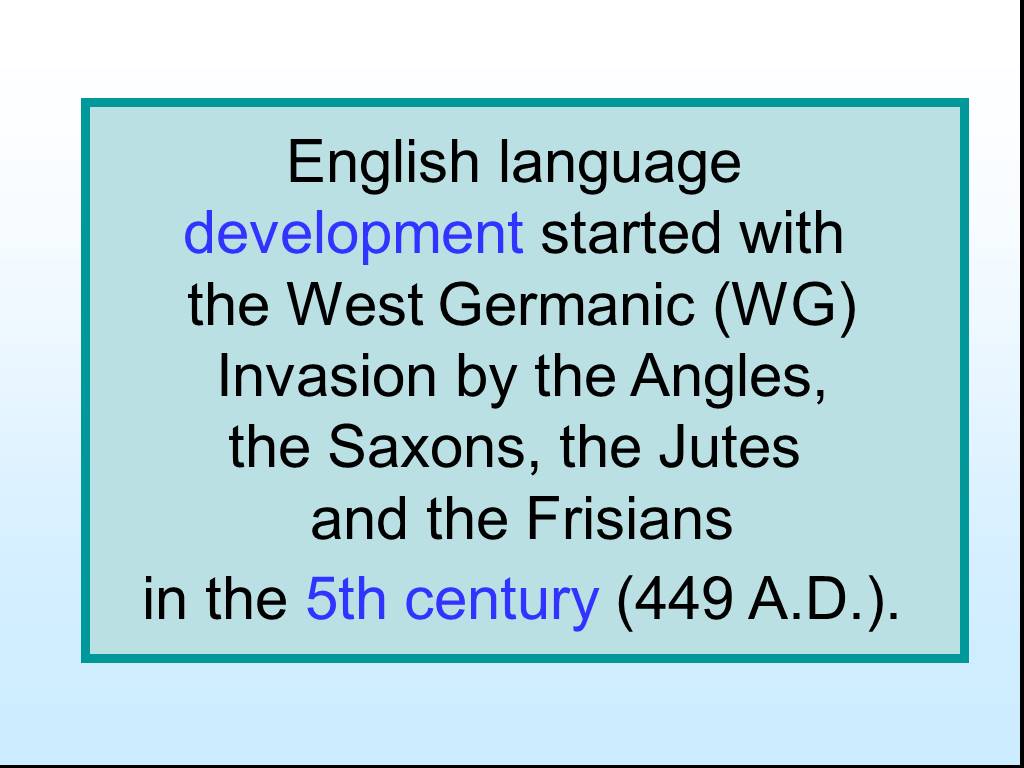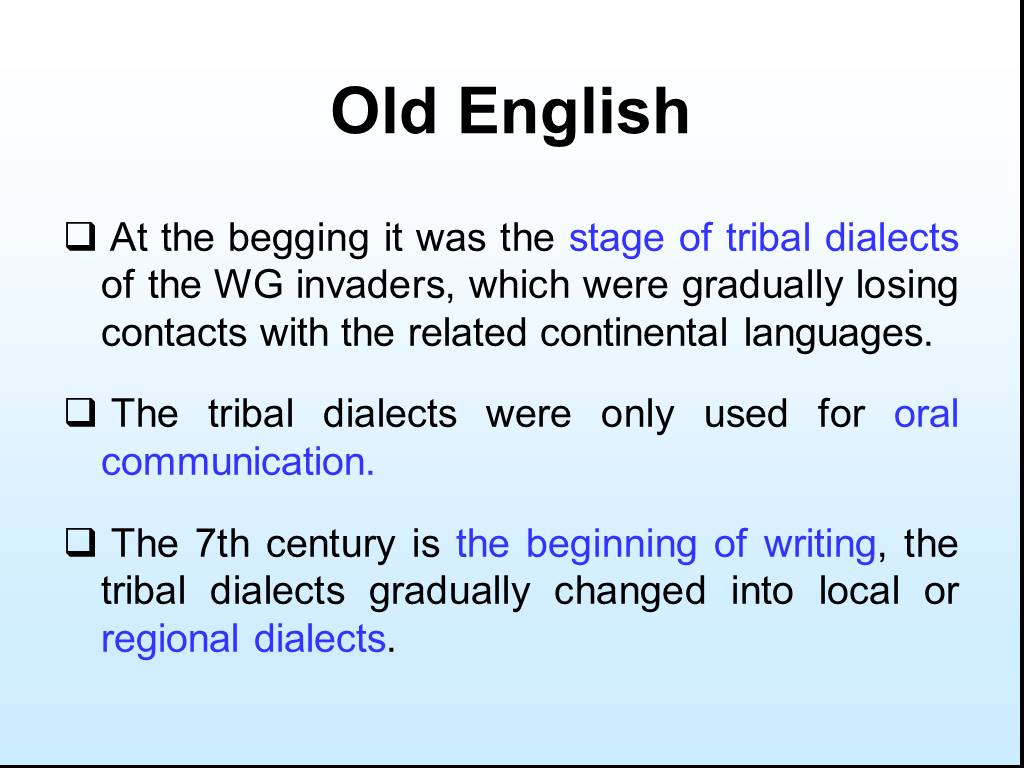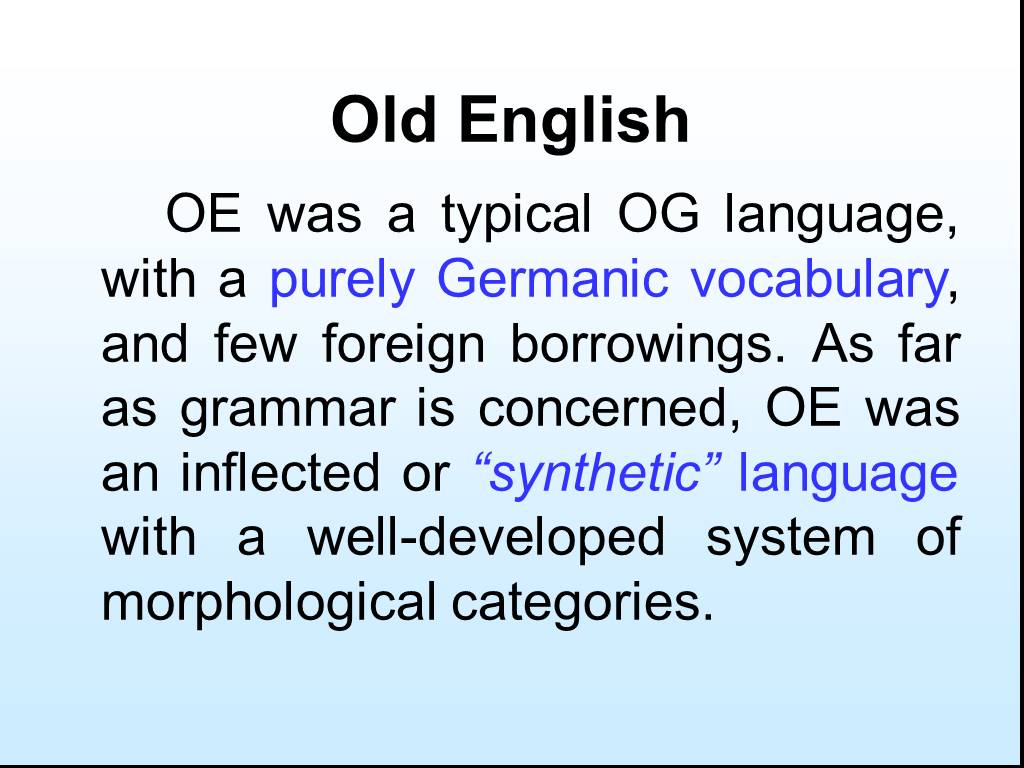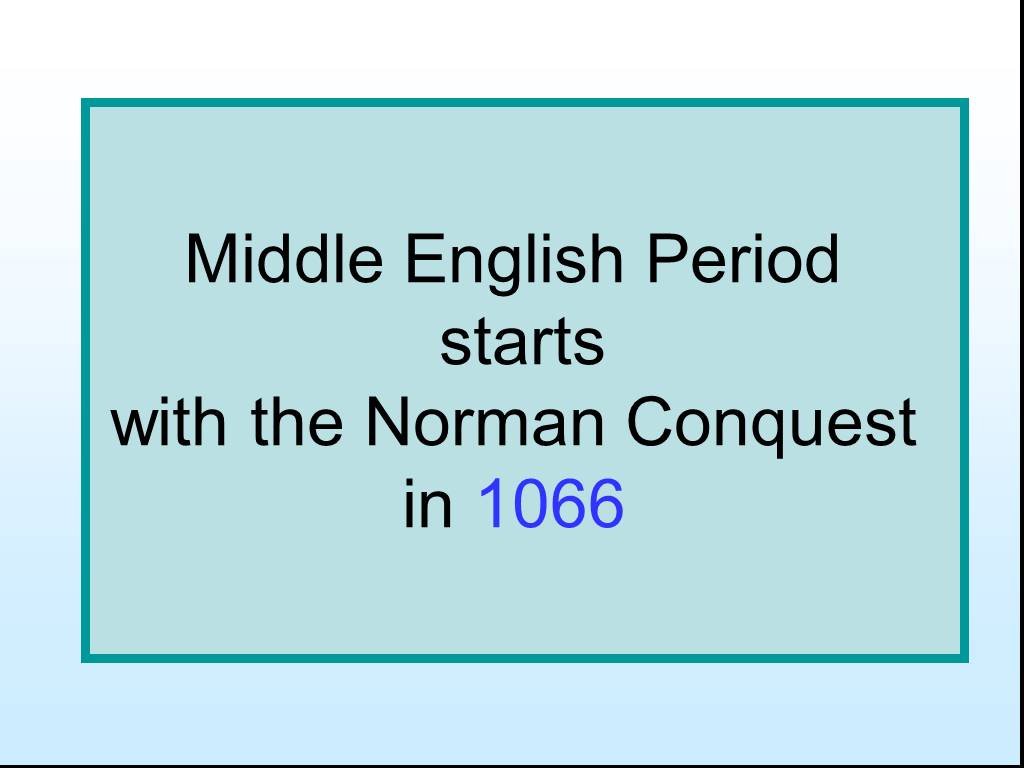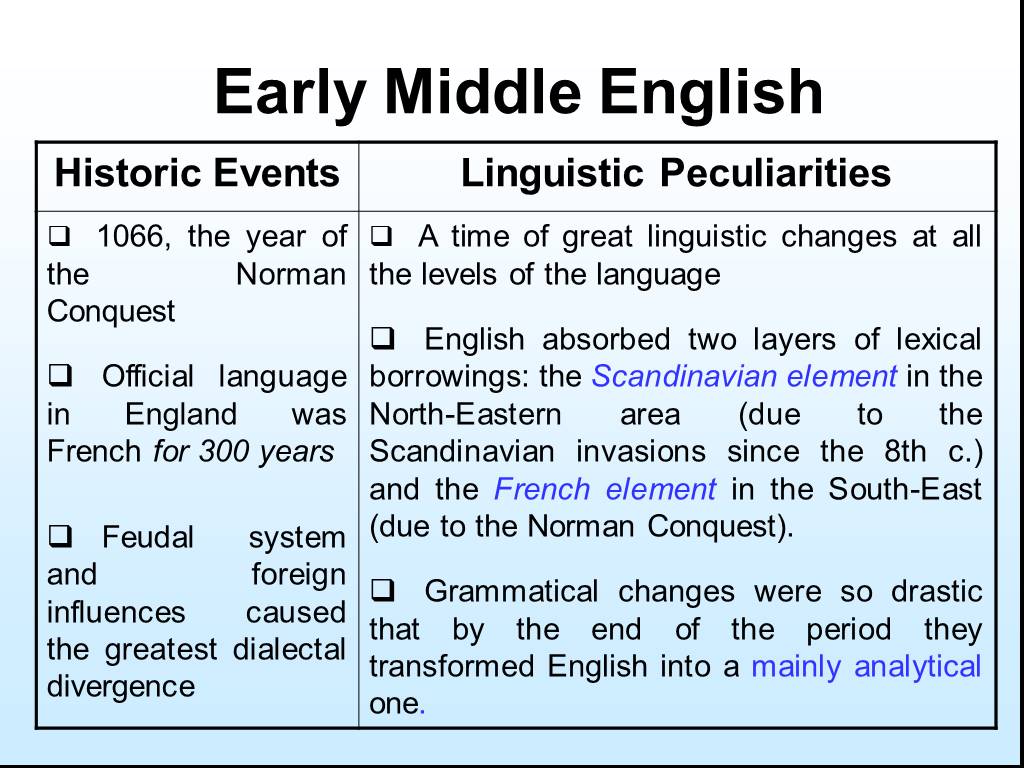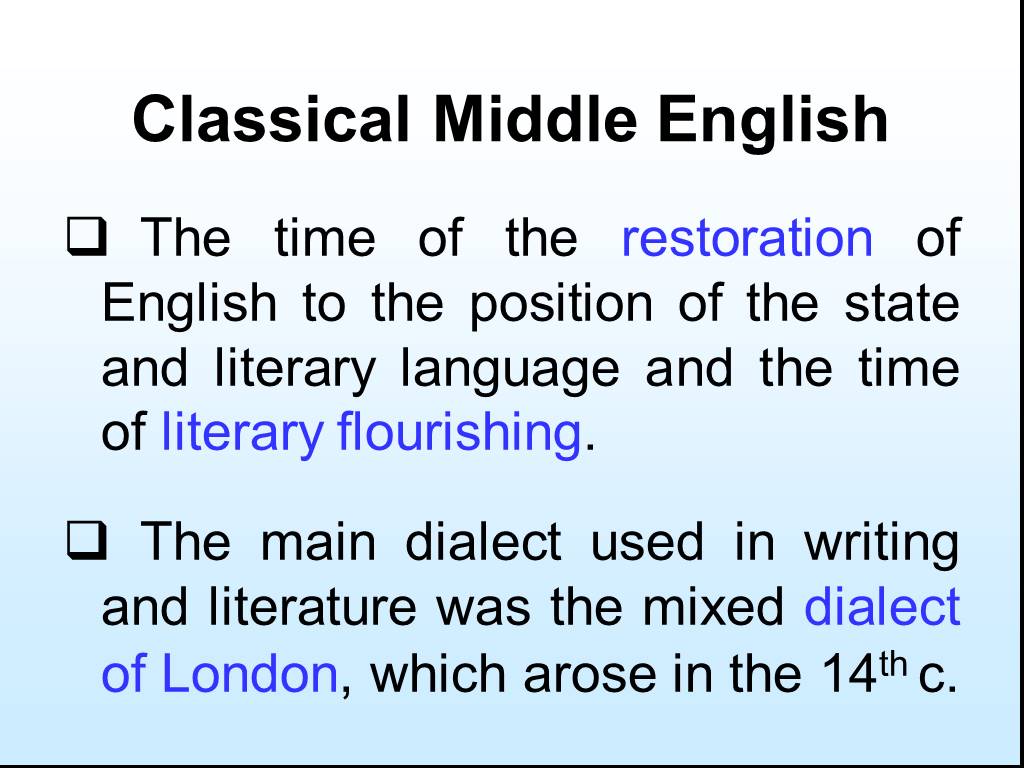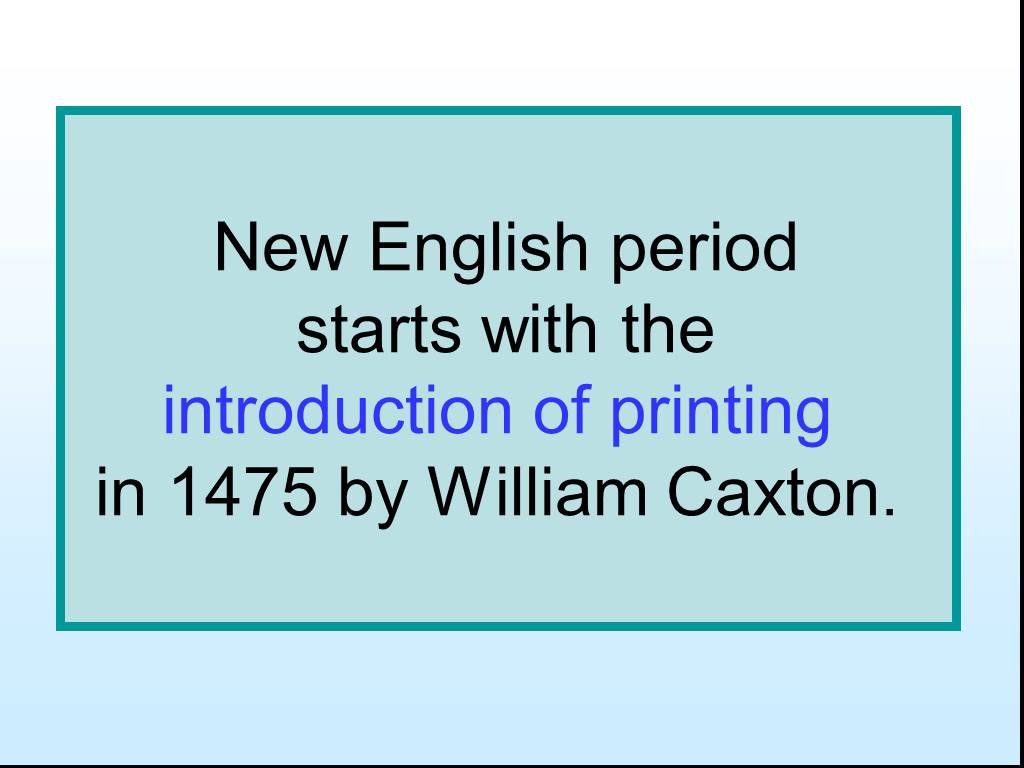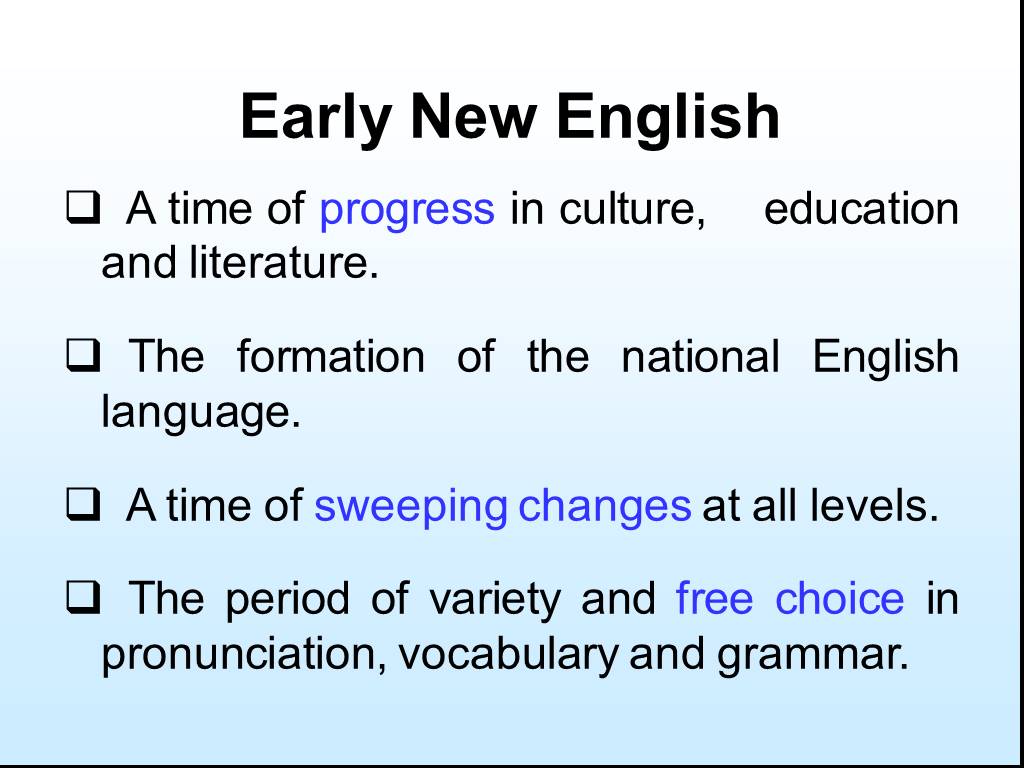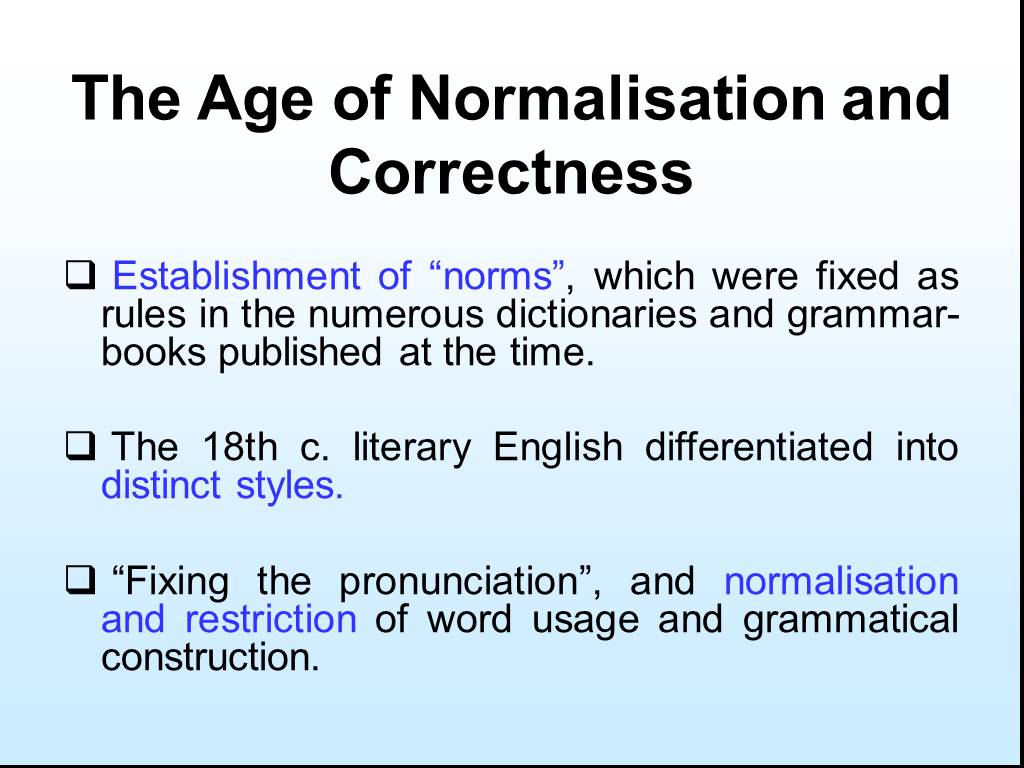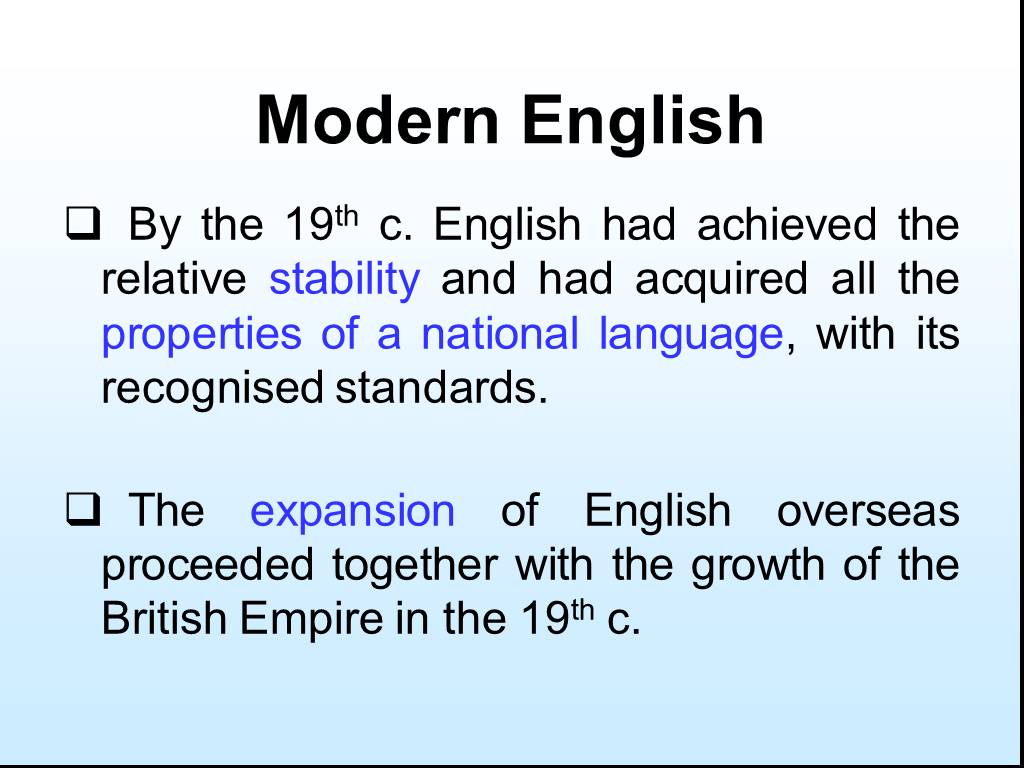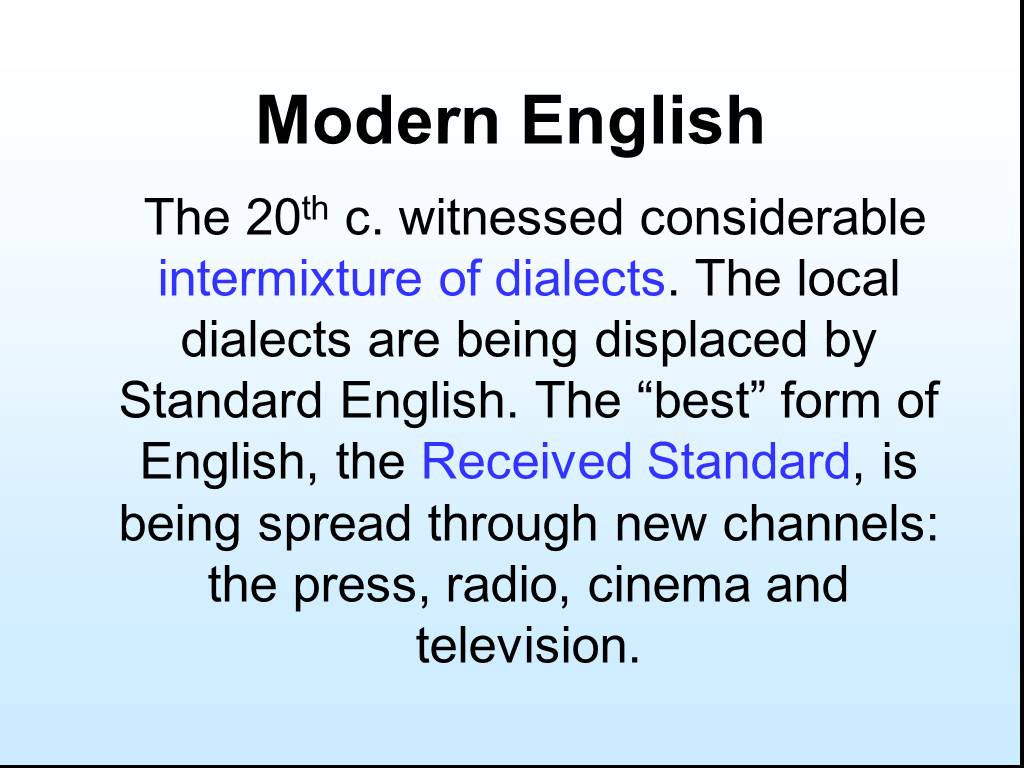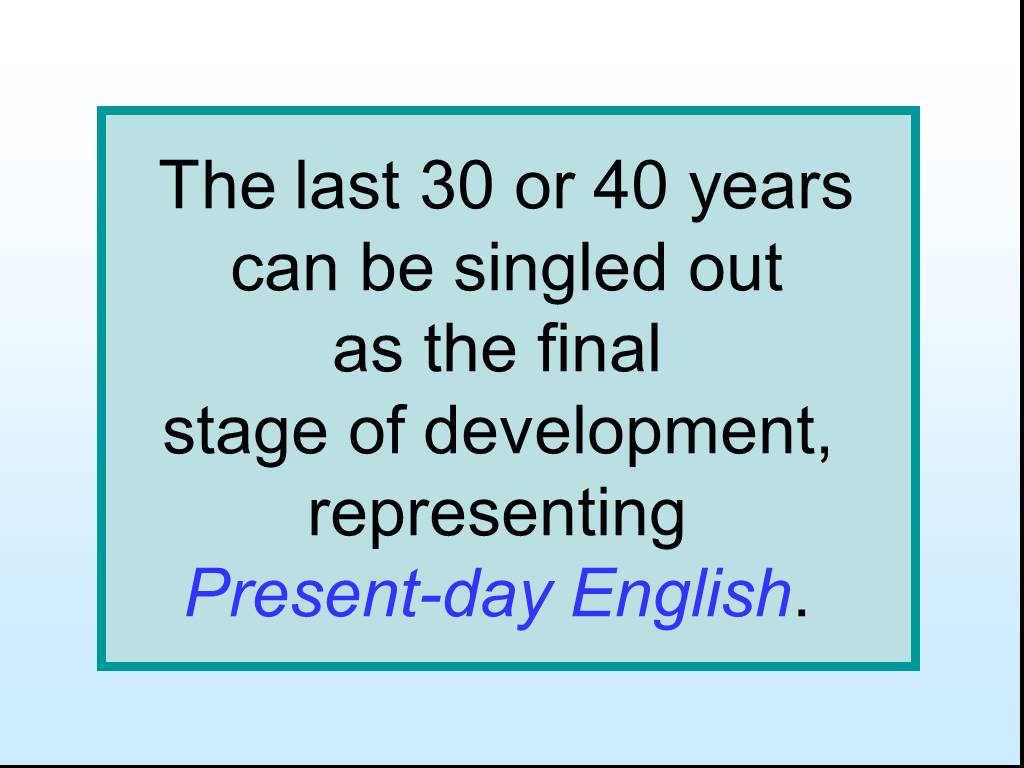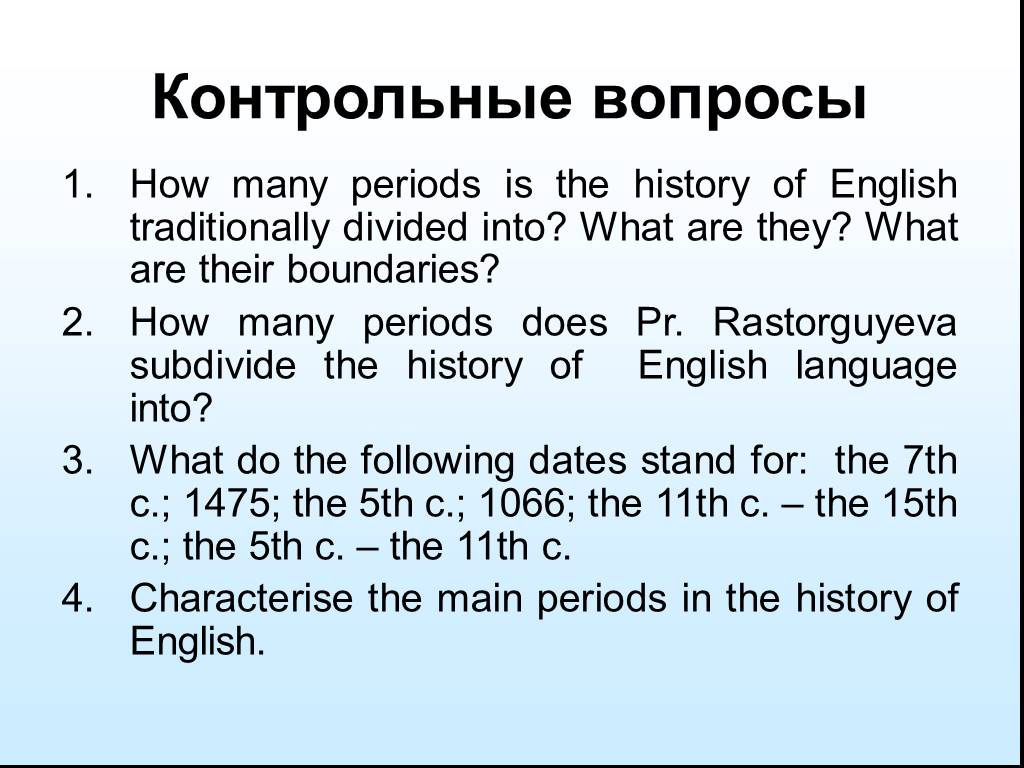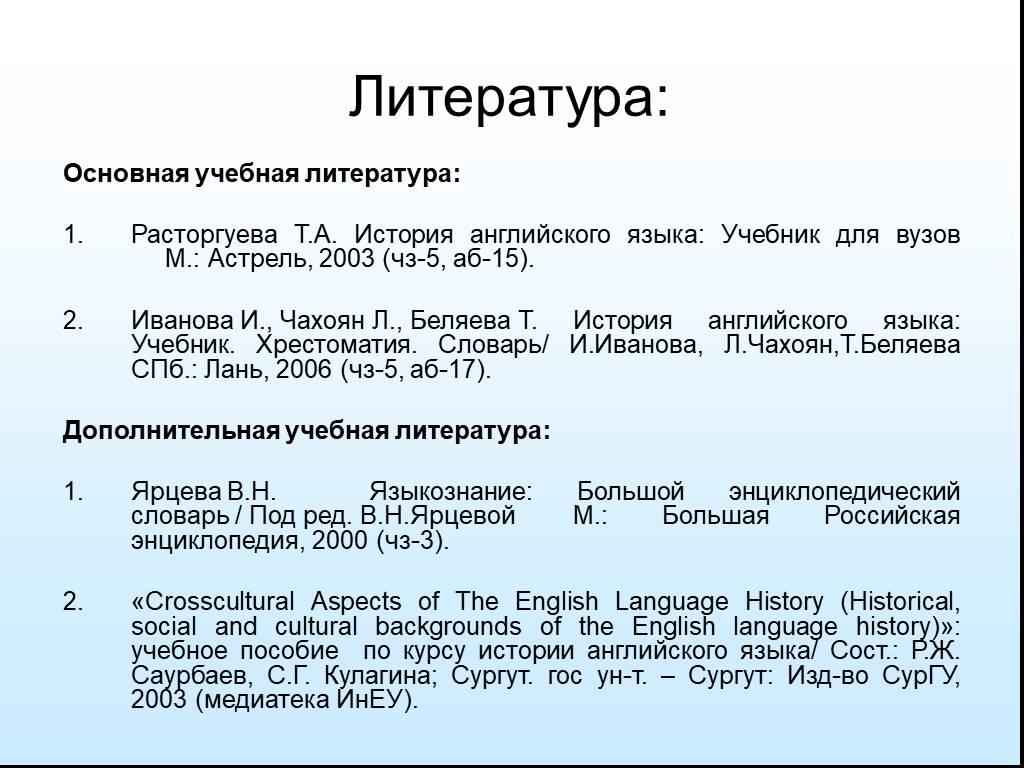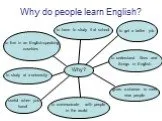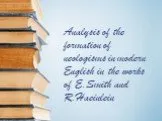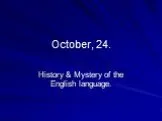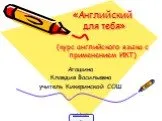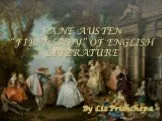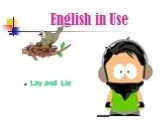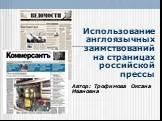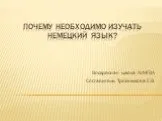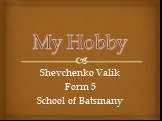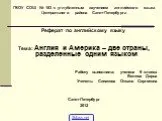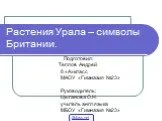Презентация "Periodisation of English" – проект, доклад
Презентацию на тему "Periodisation of English" можно скачать абсолютно бесплатно на нашем сайте. Предмет проекта: Иностранный язык. Красочные слайды и иллюстрации помогут вам заинтересовать своих одноклассников или аудиторию. Для просмотра содержимого воспользуйтесь плеером, или если вы хотите скачать доклад - нажмите на соответствующий текст под плеером. Презентация содержит 19 слайд(ов).
Слайды презентации
Список похожих презентаций
Happy English!!!
Man (Человек) Lesson 1. Head (голова) Ears (уши). Hair (волосы). Eyes (глаза) Nose (нос). Lips (губы) Teeth (зубы). Language (язык) Neсk (шея). Hand ...Why do people learn English
Teenage years. school first love bad habits exams subcultures dating fun free time life style personal problems violence duties friends hobbies. What ...Analysis of the formation of neologisms in modern English in the works of E.Smith and R.Haeinlein
Ways of neologisms formation Lexico-grammatical Phonological Semantic change Borrowings. Lexico-grammatical grouping Composition Affixation Conversion ...Speaking English
The aims of the lesson:. To summarize the material of the previous lessons. To learn the new words. Get the new information about the British history. ...The System of english verbs
Система английских глаголов. В системе английских глаголов 12 времен. Такое расхождение с грамматикой русского языка происходит потому, что англичане ...OUR HAPPY ENGLISH
English is the best of subjects! Children study day and night. Our teachers make the wonder— Make the pupils smart and bright! Our teacher in the ...Preliminary English Test
An exam consist of:. Reading and Writing, Listening, Speaking. Reading (5 tasks - 35 questions). Contains tasks-choice from a variety of options proposed ...English Cuisine
The features of English cuisine. English cuisine includes, traditions, styles and recipes associated with England; It has distinctive attributes of ...English for you
ENGLISH FOR YOU Form 6. Может ли компьютер заменить учителя? Твои школьные учебники. . Что ты научишься делать и узнаешь. Выучишь много новых слов ...English Contest «Having a good time with your family»
Task 1 Name members of the family. She is the daughter of my mother. She is my ... She is the sister of my mother. She is my ... . He is the son of ...English Crossword Puzzles Английские кроссворды
English Crossword Puzzles Английские кроссворды. Васильева Р. М., учитель английского языка МОУ Алтанская СОШ с. Алтан Амгинского улуса. CONTENTS ...English
Лобанова Наталья Михайловна и учащиеся 7а класса приглашают Вас на урок английского языка! Why study English? Language is the most important mean ...Easy English
Эксперимент по проблеме:. «Формирование элементарных навыков общения на иностранном языке детей в системе «Детский сад - начальная школа». разработана ...Club of English
I would like to make a club of the English language. There could walk all the students and teachers of our school, and their relatives. I think that ...Jane Austen“First lady” of English literature
Jane Austen - (16 December 1775 – 18 July 1817) was an English novelist whose works of romantic fiction earned her a place as one of the most widely ...English Holidays
autumn holiday Осенние каникулы. autumn holiday. The most important English autumn holiday – Halloween Самым главным в английских осенних каникулах ...My Favourite English writer
Charlotte Brontё. Charlotte Brontё an English novelist of the 19th century, was a contemporary of Dickens,Thackeray and Geskell. Biography. She was ...English in Use
Look at the differences. Lay – to put or place Lie – to be in a particular position Lie – to say sth. that is not true. Now look at the table. Examples. ...Play and learn English
Содержание. 1.Артисты нашего театра 2.Животные 3.Глаголы 4.Счёт 5.Школьные принадлежности. 1 3 6 8 9. Соедини слово и картинку. Tricky. Alice. Tim. ...English is everywhere
Цель мастер-класса:. Овладение умениями по распознаванию слов, вошедших в русский язык из английского языка. Формирование мотивации к самосовершенствованию, ...Конспекты
If You Want to Have an English Pen Friend, Write Him an E-mail!
Смагина Елена Владимировна. Учитель английского языка ГБОУ СОШ №1317 г. Москвы. Конспект системно-деятельностного урока английского языка. ...Is It necessary to Learn English?
Бойко Лилия Валерьевна. НОУ «Школа-интернат № 29ОАО «РЖД». г. Уссурийск. Учитель английского языка. Урок английского языка в 10-м классе (филологический ...We can speak English
Никитина Светлана Алексеевна. Учитель английского языка. ГБОУ СОШ 1034. Класс:. 2. . УМК «Английский с удовольствием» М.З. Биболетова. Тема ...Are you an Expert in English?
Game for. the. 5 forms: “Are you an Expert in English?”. Good morning dear guests. You are welcome to our game: “Are you an expert in English”. ...New Millennium English
Министерство образования и науки Удмуртской Республики. Управление образования Администрации г. Ижевска. Муниципальное бюджетное общеобразовательное ...School subjects in Russian and English school
МБОУ «Гимназия №93». Урок по теме:. «School subjects. in Russian and English school ». 5 класс. . Выполнила: ...English is fun!
Муниципальное бюджетное общеобразовательное учреждение средняя общеобразовательная школа № 17 станицы Выселки муниципального образования Выселковский ...Millennium English
‘New Millennium English 9’. Unit 6 Lesson 1. 11.02.20. 14. г. Этапы. Методы и формы работы. . Оборудование. . Учитель. . ...English around us
. School. №. 204 by ALTYNSARIN. . Grade: 9 “A,B,G”. Date: 22.11.2013. Prepared by: Urazova Gulbakyt. ...English is around us
Открытый урок в 8-ом классе по теме:. “ English is around us”. Goals:. 1. To form correct speech when you answer the questions. 2.to develop ...Советы как сделать хороший доклад презентации или проекта
- Постарайтесь вовлечь аудиторию в рассказ, настройте взаимодействие с аудиторией с помощью наводящих вопросов, игровой части, не бойтесь пошутить и искренне улыбнуться (где это уместно).
- Старайтесь объяснять слайд своими словами, добавлять дополнительные интересные факты, не нужно просто читать информацию со слайдов, ее аудитория может прочитать и сама.
- Не нужно перегружать слайды Вашего проекта текстовыми блоками, больше иллюстраций и минимум текста позволят лучше донести информацию и привлечь внимание. На слайде должна быть только ключевая информация, остальное лучше рассказать слушателям устно.
- Текст должен быть хорошо читаемым, иначе аудитория не сможет увидеть подаваемую информацию, будет сильно отвлекаться от рассказа, пытаясь хоть что-то разобрать, или вовсе утратит весь интерес. Для этого нужно правильно подобрать шрифт, учитывая, где и как будет происходить трансляция презентации, а также правильно подобрать сочетание фона и текста.
- Важно провести репетицию Вашего доклада, продумать, как Вы поздороваетесь с аудиторией, что скажете первым, как закончите презентацию. Все приходит с опытом.
- Правильно подберите наряд, т.к. одежда докладчика также играет большую роль в восприятии его выступления.
- Старайтесь говорить уверенно, плавно и связно.
- Старайтесь получить удовольствие от выступления, тогда Вы сможете быть более непринужденным и будете меньше волноваться.
Информация о презентации
Дата добавления:9 января 2019
Категория:Иностранный язык
Содержит:19 слайд(ов)
Поделись с друзьями:
Скачать презентацию





